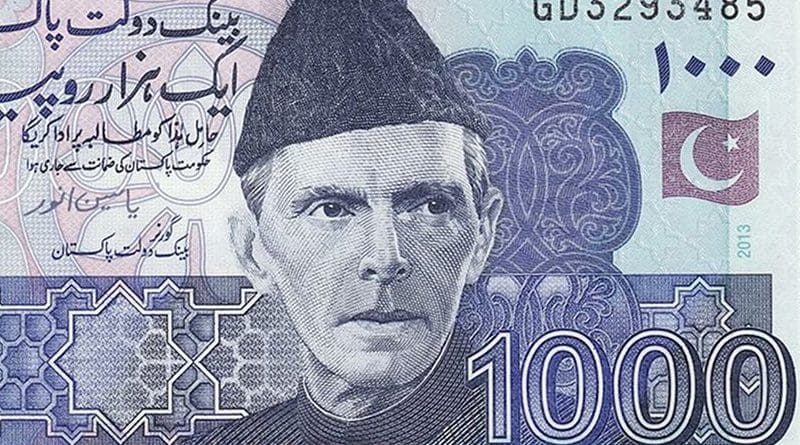Business-Led Economic Transformation In Pakistan – OpEd
The global food system is reeling from Russia’s invasion of Ukraine, the reverberating effects of the COVID-19 pandemic, and devastating droughts and flooding across Asia, Africa and the Middle East. Looking to the future, a warming climate threatens to reduce crop yields worldwide, while unpredictable severe weather will introduce many opportunities for localized crop failures and supply chain disruptions. In a modern economy, a county’s food system could not be anything other than large-scale, intensive, technological, and industrialized. Agriculture in Pakistan remains by far the biggest employer of labor and is an especially important sector from a social, livelihood and foreign exchange perspective.
The establishment of the Special Investment Facilitation Council (SIFC) provides Pakistan a pathway on an endeavor to become self-sufficient by capitalizing on its rich agricultural land by transforming its agri-food system towards higher productivity and competitiveness. In order to fully utilize Pakistan’s 240 million population and resource-rich environment, the civil-military alliance has meticulously developed a comprehensive long-term plan that seeks to draw foreign direct investment. The project that distinguishes SIFC from others is that it will operate as a constant one-window operation with the goal of removing all bureaucratic red tape. Aiming to improve the use of nearly 9 million hectares of uncultivated wasteland for modern agro-farming.
The programme intends to push farmers to invest more in labor-saving and productivity-enhancing practices and technologies in a virtuous cycle of agricultural intensification, and economic growth which is the hallmark of all developed societies.
The World Food Programme estimated that 18.3 percent of Pakistanis are experiencing a food crisis, and 36.9 percent of them are food insecure. The initiative’s main goals are to reduce domestic agricultural imports, increase exports, and meet the rising food needs of the country’s expanding population. This project will create employment opportunities for the people of the nation, by producing greater economic surplus that is, profits and ultimately societal wealth. Additionally, it would increase farmers’ understanding of climate change, allow for crop monitoring through satellites, and offer insightful data on the fertilizer, water, and spray requirements for agricultural regions. This programme would also make it easier to utilize underused and unirrigated land, which would help with resource production and sustainable development.
The initiative’s main goals are to reduce domestic agricultural imports, increase exports, and meet the nation’s rising food demands. An affirming program, SIFC has the potential to considerably strengthen Pakistan’s economy. Strong coordination and cooperation amongst numerous stakeholders, including government agencies, the military, and international partners, is transpiring for the successful deployment of SIFC. The successful implementation of these programs depends critically on the functional operation of the special committees, specifically the Apex, Executive, and Implementation committees.
Strong regulatory frameworks, openness, and reduced bureaucratic procedures are three essential components for the SIFC to be successful in changing Pakistan’s economic trajectory. To draw and keep investors, it will be essential to put these factors into practice. A business-friendly climate can also be created by providing tax breaks, legal safeguards, and infrastructure improvements.
Pakistan has learned from other nations that have drawn foreign investment successfully in order to be successful. Pakistan’s SIFC is modeled after the Economic Development Board of Singapore, the National Investment Promotion and Facilitation Agency of India, the Council for the Promotion of International Trade-Investment Promotion Agency of China, and the Australian Trade and Investment Commission.
The success of this endeavor depends on its optimal implementation, with a business environment that is encouraging, and on initiatives which improve human resources. For SIFC to succeed, civil and military leadership must effectively communicate with one another and work together to overcome shifts in policy continuity. SIFC powerfully transforms Pakistan’s economic landscape and leads the country to a successful future by implementing the precise tactics and exhibiting unflinching resolve.
SIFC is an essential pillar in Pakistan’s path to economic development, to sum up. It reflects tactical decisions that have the ability to reenergize the economy of the country, encourage the creation of jobs, lessen food poverty, and promote sustainable growth.
SIFC works by investing in agriculture, forests and treating food policy as a corporate endeavor for public utility. Policymakers are wise to foresee the impacts of this initiative for a long term whilst putting in place greener measures for the future. The project works by providing subsidies to attract investment and working for renewable energy, The success of this endeavor depends on its implementation being done well, on a business environment that is encouraging, and on initiatives to improve human resources.
With agriculture as their first focus, Saudi Arabia and other foreign investors are eager to make investments in Pakistan across four important industries. Saudi Arabia has made an initial investment of USD 500 million to develop the nation’s irrigation industry. Defense manufacturing, information technology, as well as mining and minerals, are some areas of interest. Pakistan’s exports are expected to increase dramatically as a result of collaborative initiatives with Saudi Arabia, China, the United Arab Emirates, Qatar, and Bahrain. These collaborations include a wide range of topics, including farming, crops including wheat, cotton, rice, sunflowers, and fruits, as well as poultry, solar power, and wind energy.
SIFC are two essential pillars in Pakistan’s path to economic development, to sum up. They reflect tactical decisions that, if effectively carried out, have the ability to reenergize the economy of the country, encourage the creation of jobs, lessen food poverty, and promote sustainable growth. The government must now work together with its allies to overcome obstacles. Help direct these projects to achieve their goals, ensuring Pakistan and its people have a brighter and more prosperous future.

